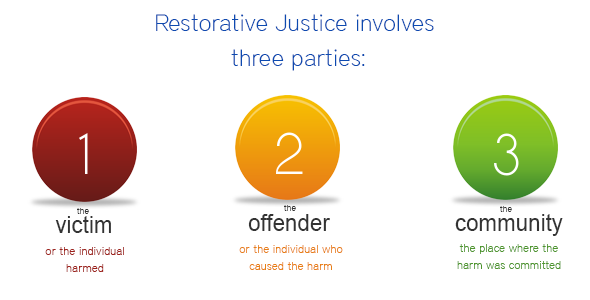Wyatt Cenac’s new series on HBO, Problem Areas, has had a brilliant, laser-sharp focus on the issues with the criminal justice system and policing in the US for the entire run of its debut season. On June 8th, the episode centered on the concept of restorative justice, where offenders will meet with the families of victims and attempt to reconcile and rehabilitate, rather than put them in the system.
District attorneys hold a lot of power when it comes to the restorative justice process. San Francisco District Attorney @GeorgeGascon talks about the failings of the current punitive system. #ProblemAreas pic.twitter.com/r1NhNImGgE
— Wyatt Cenac's Problem Areas (@WCPAonHBO) June 12, 2018
Wyatt shared the story of his father’s murder by a young man, who had a past of criminal convictions, and wondered if this program had been offered to him, then maybe he’d have found a different path, and not robbed and shot his cabbie father. It was an incredibly moving episode, and made me reflect on someone I once knew.
In high school, I wasn’t one of the cool kids, but I had a few good friends and acquaintances. One of them was about a foot and a half taller than little five foot one me, and simply a joy to be around. We were in the same grade, we’d frequently joke with one another, and for some reason I would call him a “pregnant turkey” as though it was some kind of clever insult. He’d always laugh it off and return some other lame insult. But he didn’t have a mean bone in his body. If a fight broke out, he was there in the middle of it, trying to keep the peace. He was just one of those people.
I can’t say we were the best of friends, or even good friends, but he was truly just an all around pleasant human being. A force for good. If he saw I was having a bad day, feeling like garbage when I was sick or being treated poorly by one of the cruel, cliquish high school girls, he’d wrap me in a bear hug. Then I changed schools in 2002, we didn’t keep in touch, and I never saw him again.
Two days after my birthday in 2005, an old school chum of mine contacted me online. He told me to look up my old friend in the news, nothing more. And then I got the most devastating information imaginable: he had been murdered. He was at a house party, and two people were in the middle of an idiotic, escalating argument. My friend, doing what I always knew him to do, decided to get in the middle of the fight to attempt to calm these angry men down. Instead, someone grabbed for a gun and shot him. He died on the scene. He was only twenty years old.
The man who murdered him took an Alford plea, received a manslaughter and gun conviction, and will be released in 2021. But in my grief, I wondered about him too. What brought him to this? Turns out, like the man who murdered Wyatt Cenac’s father, he had a history of petty crime and convictions going all the way back to when he was a juvenile. And knowing about restorative justice, I just have to wonder: What if he had been offered that as an option? Would the story have a different ending? Would my friend still be alive?
There are so many what ifs in this equation. This is someone I knew for just a few short years of my life, who I hadn’t seen or spoken to since I left high school, and his murder had a profound effect on me. I cannot imagine the pain his parents go through every single day. His father has become an advocate for the families of murder victims, and it is somewhat comforting that through his sorrow, he found a way to find some kind of purpose in the death of his son.
Still, there has to be a way to reach people before they get to this point. Instead of tossing kids into a system that becomes the only thing they know, where crime, violence and prison is a way of life. We need to get to them sooner. When they mess up, give them a chance to rectify and recompense when they mess up, instead of throwing them in cages and denying them a chance to work through their issues. Perhaps with widespread restorative justice, not just for children, but for adults as well, there could be fewer people who ended up like Cenac’s father and my friend.
